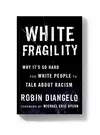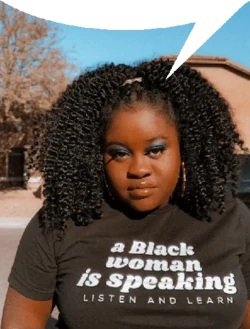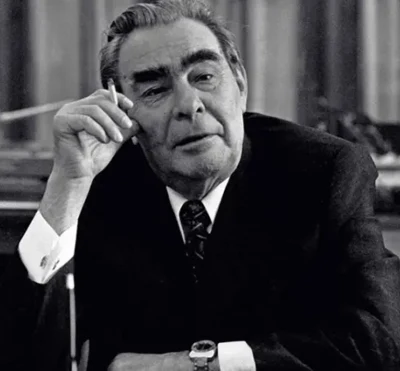!chuds yts are now DEI candidates 
NYT is now unacceptable 
Ever since speculation began that Vice President Kamala Harris might replace President Biden at the top of the Democratic ticket, there has been a steady, ugly chorus on the right. The New York Post published a column that declared that Harris would be a "D.E.I. president," and quickly the phrase ricocheted across the conservative media ecosystem.
The invocation of diversity, equity and inclusion programs meant to bring people from underrepresented backgrounds into institutions of power and influence clearly implied that a Black woman got power because of racial preferences. Black achievement, in this narrative, is always unearned and conferred without regard to merit.
Listening to JD Vance's speech at the Republican convention on Wednesday night, as he laid out his remarkable biography --- a young man with roots in an economically devastated backwater who scaled the heights of the American elite --- I couldn't help thinking to myself: If Harris is a D.E.I. candidate, so is Vance. It just depends on what kind of diversity you mean. It depends, indeed, on how you understand the role of identity in shaping the opportunities that define anyone's life.
All politics is, at some level, identity politics --- the business of turning identity into power, be it the identity of a candidate or demographic group or political party or region of the country. For modern presidential and vice-presidential candidates, one of their most valuable assets is their life story. Some elements of that story are bequeathed at birth, but what makes politicians successful is their talent at narrating that story in a manner that allows voters to see some version of themselves and their own aspirations in the candidate. This kind of storytelling, embedded in American archetypes and ideals, has shaped our politics.
Vance's entire business and political career has flowed from his life story, which is embedded in identities he did not choose: Born a "hillbilly," of Scotch-Irish descent, he grew up in poverty, son of a single mother who was addicted to drugs. Overcoming this adversity, these disadvantages, lies at the core of his personal narrative. His ascent would hardly be so remarkable if he started from a life of middle-class comfort. But no one is portraying Vance's elevation to the Republican ticket as the outcome of some kind of illegitimate identity politics, nor is Vance perceived as having benefited from a political form of affirmative action.
And yet he almost certainly did. Race is not the only kind of diversity that gets noticed and embraced. Elite institutions love up-by-your-bootstraps Americans, and that archetype is all over Vance's life story. A promising white candidate from a county that sends few students to an elite college like Yale would get a strong look, even if that person's grades and test scores were less impressive than other applicants'. (To be clear, I have no idea what kind of grades or scores Vance had.) Regardless of race, applicants from working-class backgrounds, especially if they were the first in their family to attend college, are deemed to add class diversity.
Natasha Warikoo, a professor of sociology at Tufts University whose scholarship focuses on affirmative action and ideas about meritocracy, told me that race is a highly visible identity and the one that is most likely to be associated with unearned advantage. Yet race is not the only kind of identity that excites elite institutions looking for diversity. "We want a variety of perspectives and lived experiences," Warikoo said.
The labor historian Gabriel Winant, who crossed paths with Vance at Yale, wrote of him last year: "If you spend enough time at elite universities, you should be able to recognize this as a type: conservative white men from outside the WASP elite who have figured out how to present themselves as persecuted minorities and be rewarded for it. Although Vance no doubt did feel out of place at Yale, elite universities love promising young conservative men like him. Institutions often seek them out and do them favors; doing so makes faculty and administrators feel broad-minded."
Vance benefited from one of the most powerful forms of affirmative action that elite universities practice to attract low-income students: need-blind admissions. Like many elite schools, Yale pledges to help cover the cost of attending for poor students, and Vance wrote about receiving generous financial aid for law school, not "because of anything I'd done or earned --- it was because I was one of the poorest kids in school." I am familiar with this phenomenon --- my much less elite college had a similar policy. Our family was penniless, so I received aid that covered nearly the entire cost of my expensive education.
The sort of affirmative action that helped Vance gets easily overlooked --- it's less visible than race, making it easier to ascribe the achievements of white men to merit alone. The playing field is never tilted to help white men, the theory goes. If anything, it is tilted against them, in favor of women and minorities, we're told by the right. And if there are any advantages for white men, they exist only to help elites remain elites --- legacy admissions, preferences for athletes and players of expensive sports like sailing, old-boy networks.
In truth, it is pretty common for white men to get a leg up for some special part of their identity. Yet these men do not get labeled D.E.I. beneficiaries. No one worries that their surgeon or pilot or president was a "D.E.I. hire," even though he might have gotten his spot at an elite college because he was the son of a wealthy alumnus, or because he happened to come from a state that is historically underrepresented in elite higher education. Indeed, he may have impressed an admissions officer with an unusual story of overcoming obstacles --- a family rived by poverty and addiction in a forgotten corner of the country.
I wonder: Why do people look at Vance's life story and achievements and see a vice president, and they look at Vice President Harris's life story and achievements and see a "D.E.I. candidate"?
You have to look pretty far into history to find a vice-presidential nominee with a slimmer résumé than Vance. In fairness, he is only 39. Before he entered the Senate 18 months ago, his public service experience consisted of a stint in the Marine Corps, which is a solid early entry on a political résumé. This champion of forgotten America made his fortune by writing a best-selling book that portrayed the rural white community he came from as lazy and undisciplined, responsible for its poverty and misery. He got even richer working as a venture capitalist in Silicon Valley, hobnobbing with the billionaire fleece-vest crowd at invitation-only conferences among the uber elite. He is clearly a person of talent and drive. But it is hard to imagine that he could have gotten this far were it not for the value that elite institutions place on biographies like his.
Affirmative action of a kind is built into our political system. The drafters of the Constitution did not have the term "diversity, equity and inclusion" at hand, but how else do you describe a system that gives two senators and at least three Electoral College votes to a state that based on population qualifies for only one member of the House of Representatives? Our Constitution does not lecture Wyoming, Alaska, the Dakotas, Vermont and Delaware to pull themselves up by their bootstraps and do a better job of competing for residents with states like California and New York in order to earn their disproportionate representation.
Some of the earliest settlers of the United States were religious minorities fleeing persecution, and protection of the rights of certain minorities lies at the core of our founding documents. For better or worse, our Constitution finds value in tempering the power of the majority, though that has worked out in ways no one fathomed in the 18th century. It is telling that these kinds of preferences, the valuing of geographic and religious diversity, are so deeply embedded in our history and do not read to most people as unearned or unjust.
Personally, I think powerful institutions should value this kind of diversity. Over the course of my career I have hired and promoted many people, and diversity in the broadest sense has always been important to me. I have found that the best leaders I have worked with are eager to build teams from as wide a range of geographic, religious, class, ideological and, yes, racial and ethnic backgrounds as possible.
Kamala Harris and JD Vance, despite their political differences, have a few things in common. They were raised by tough, charismatic matriarchs. They both pursued legal careers. They both sought and won high elected office. They both come from backgrounds that are underrepresented in the halls of power. And now they are both engaged in the core work of politics --- translating their stories into power. We would do well to ask why only one of these two remarkable Americans stands accused of getting where she is based on D.E.I. The answer, I fear, is written on their faces.




 Diversity Is Our Strength
Diversity Is Our Strength 



Jump in the discussion.
No email address required.
!hiberians we know why they picked Vance
!slots111
Jump in the discussion.
No email address required.
The Scotch-Irish are even more fake than other kinds of Irish Americans.
Jump in the discussion.
No email address required.
White southerners are by far the most likely to self id as just "American" rather than some euromutt or hyphen-minority
Jump in the discussion.
No email address required.
Classic Dixie W
Jump in the discussion.
No email address required.
More options
Context
More options
Context
More options
Context
More options
Context